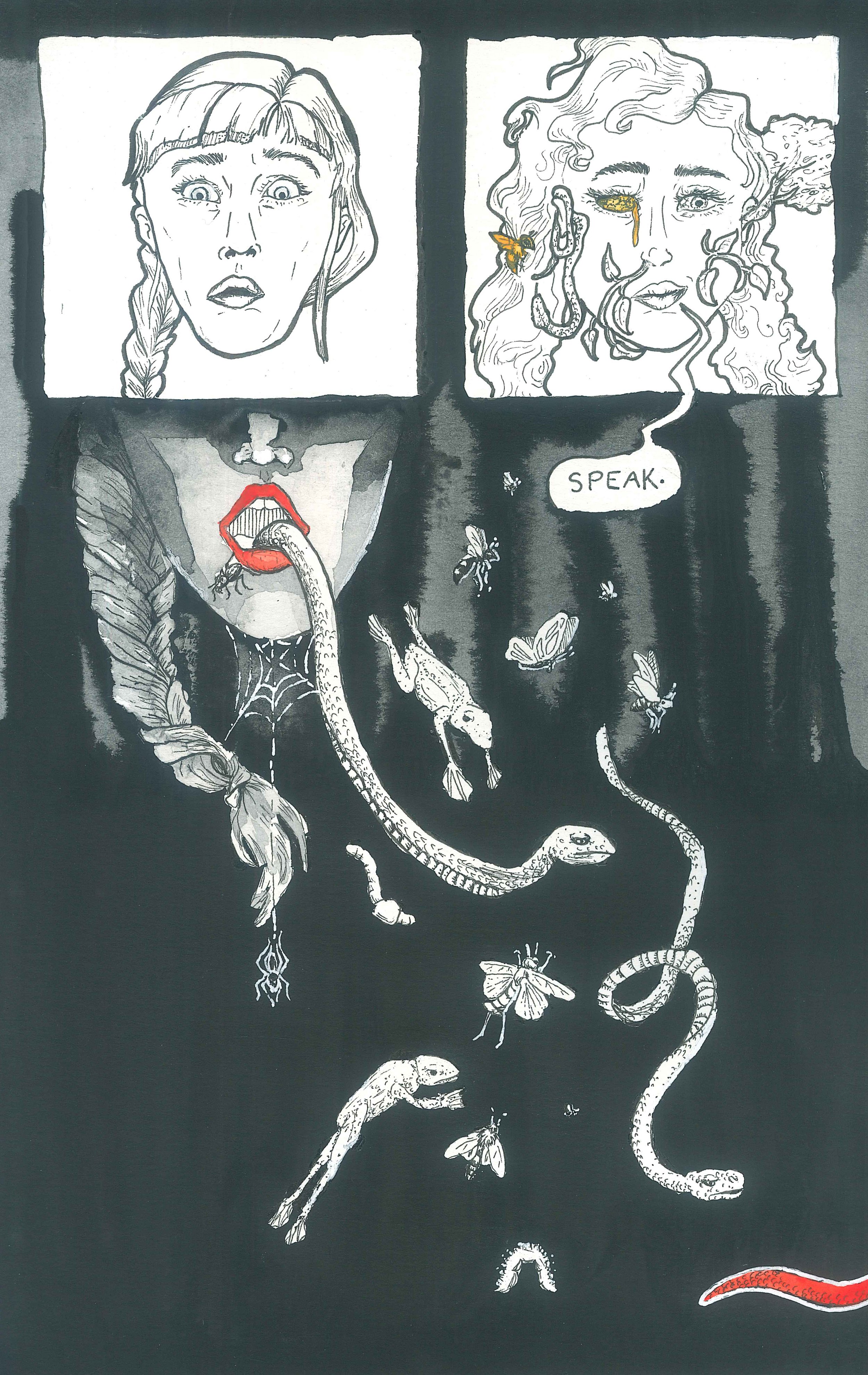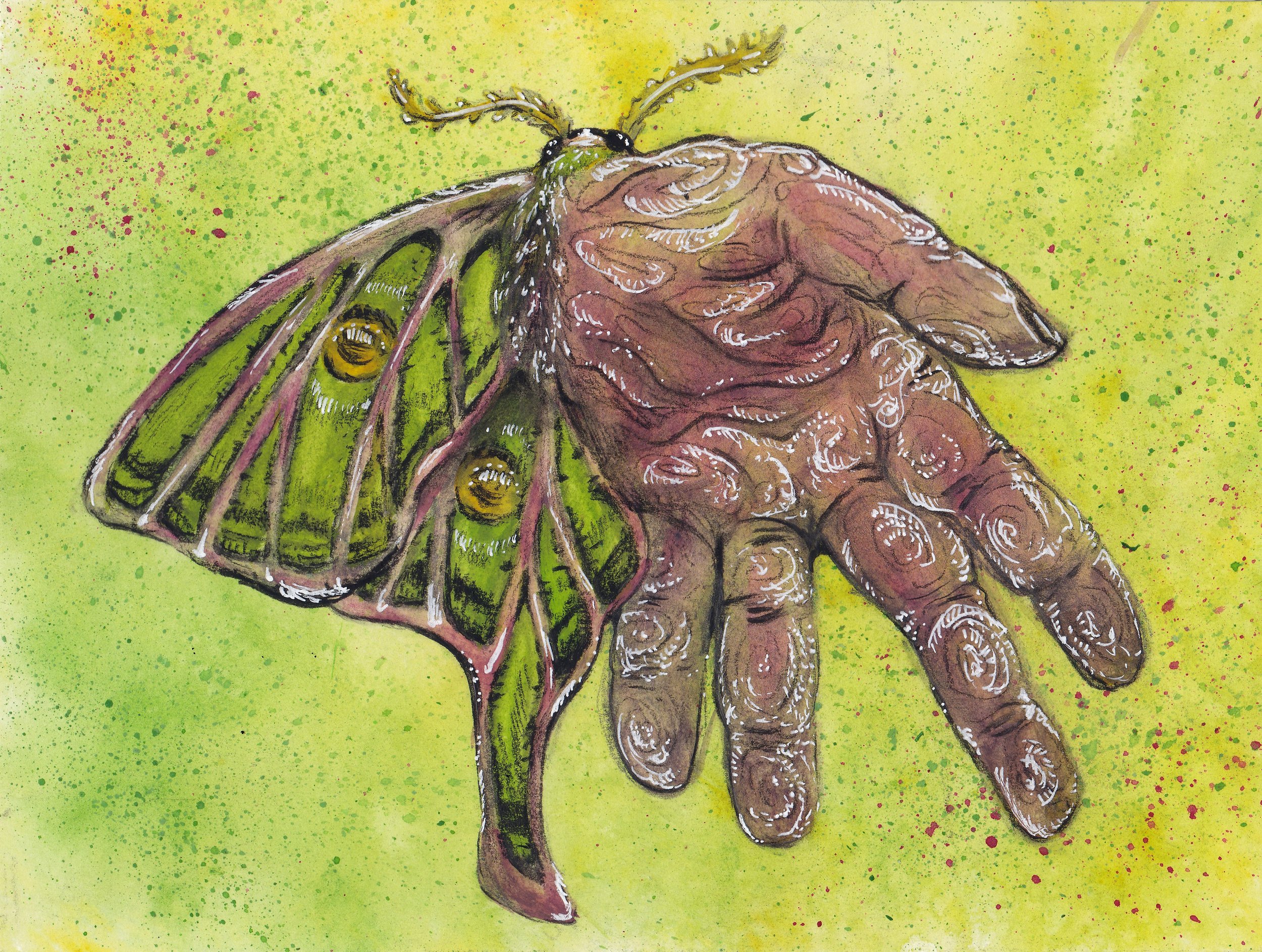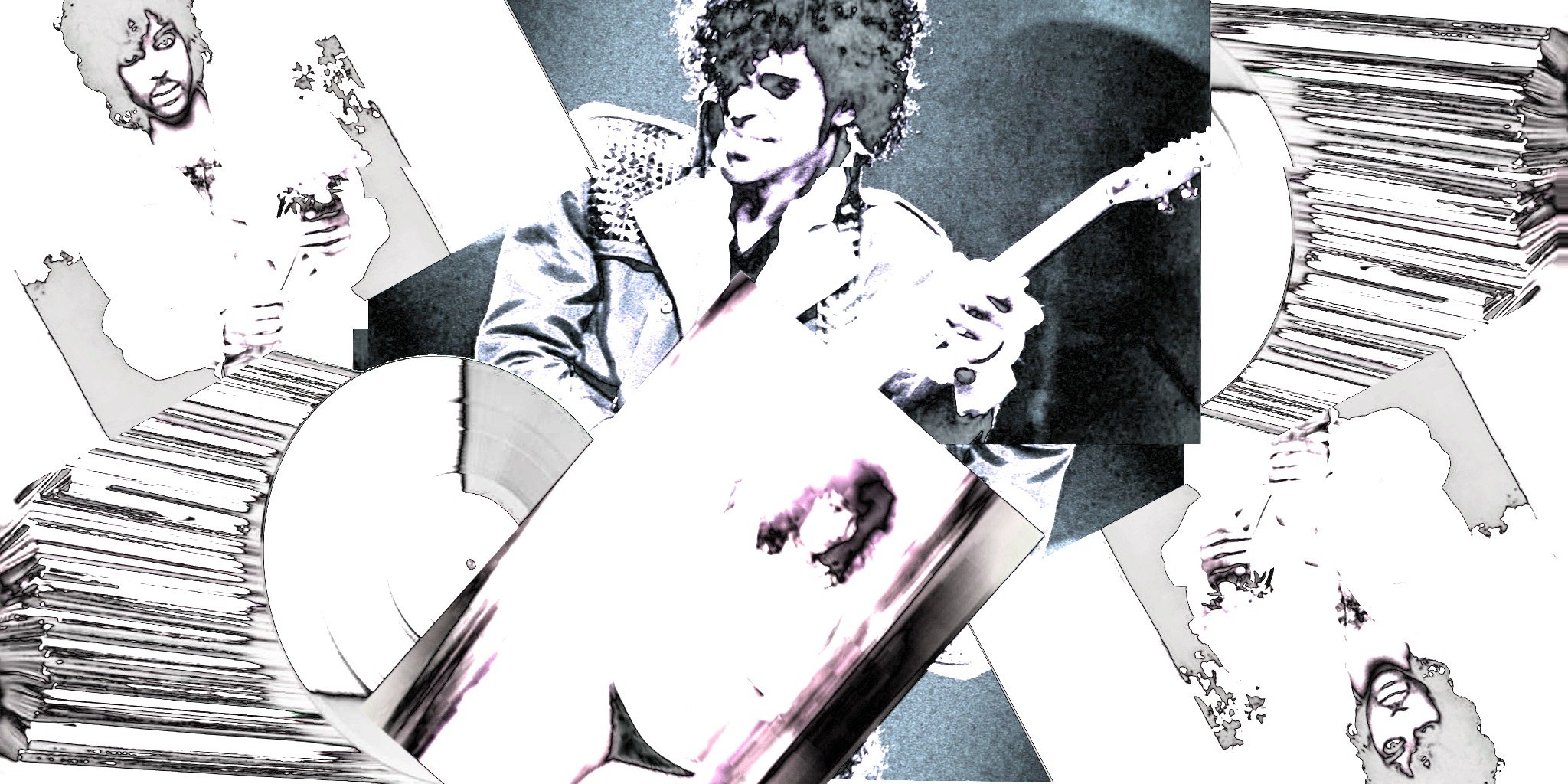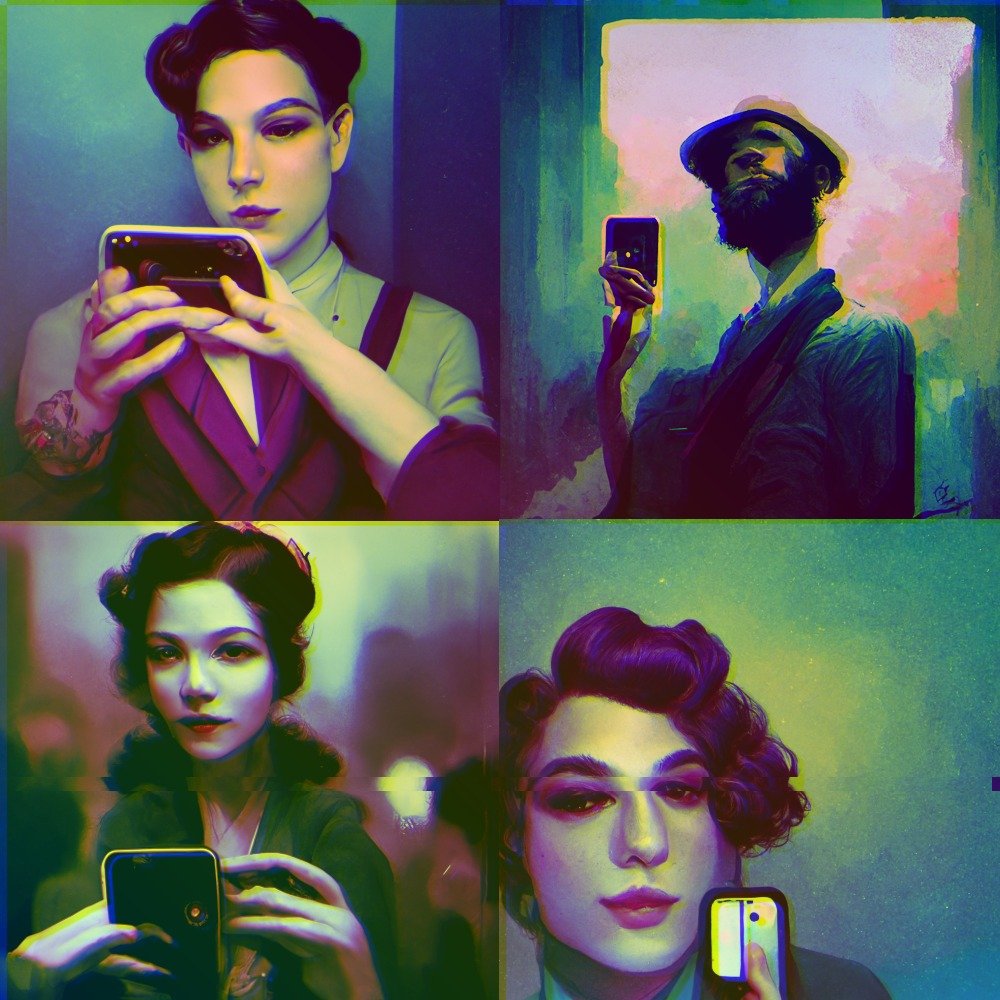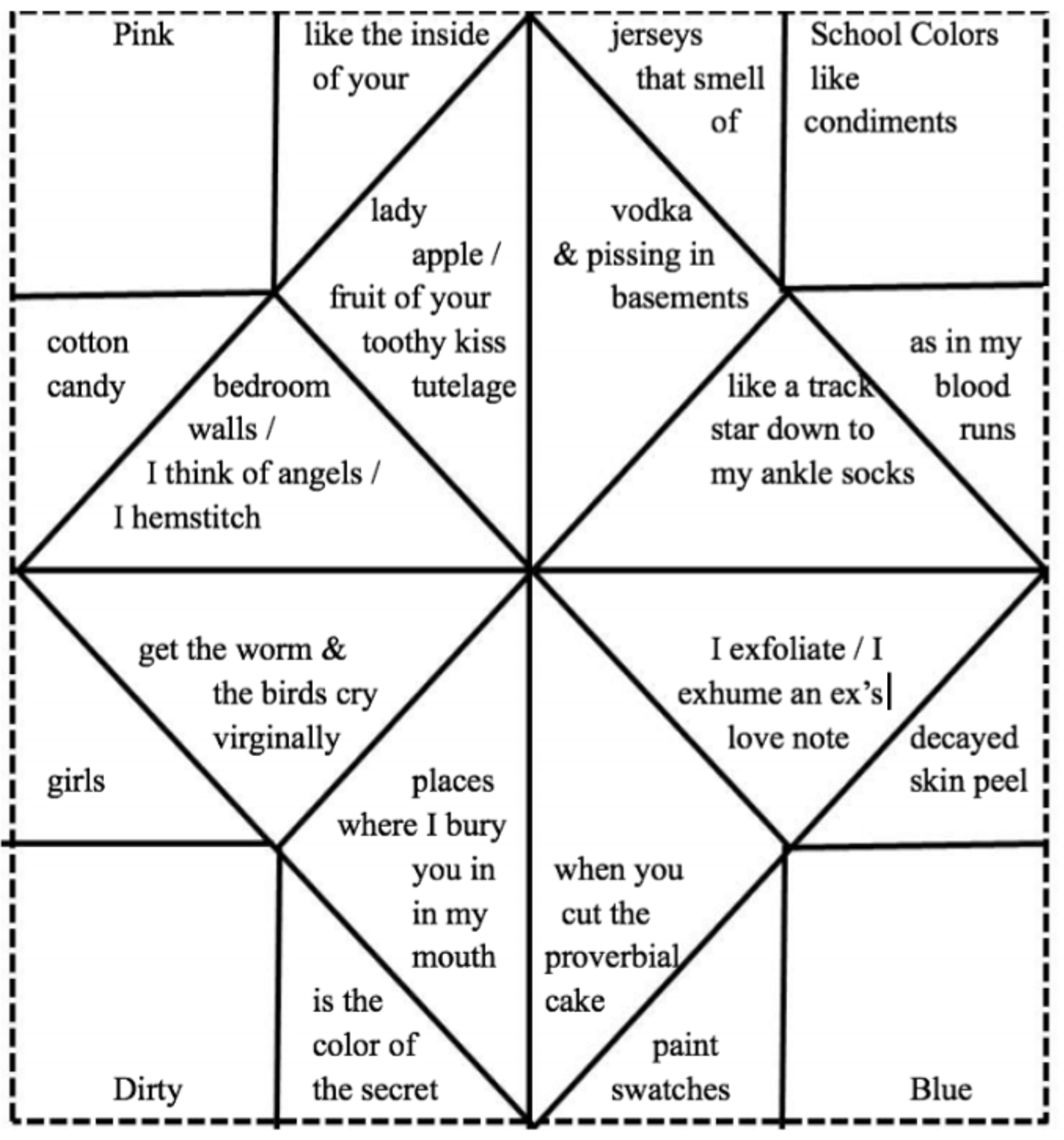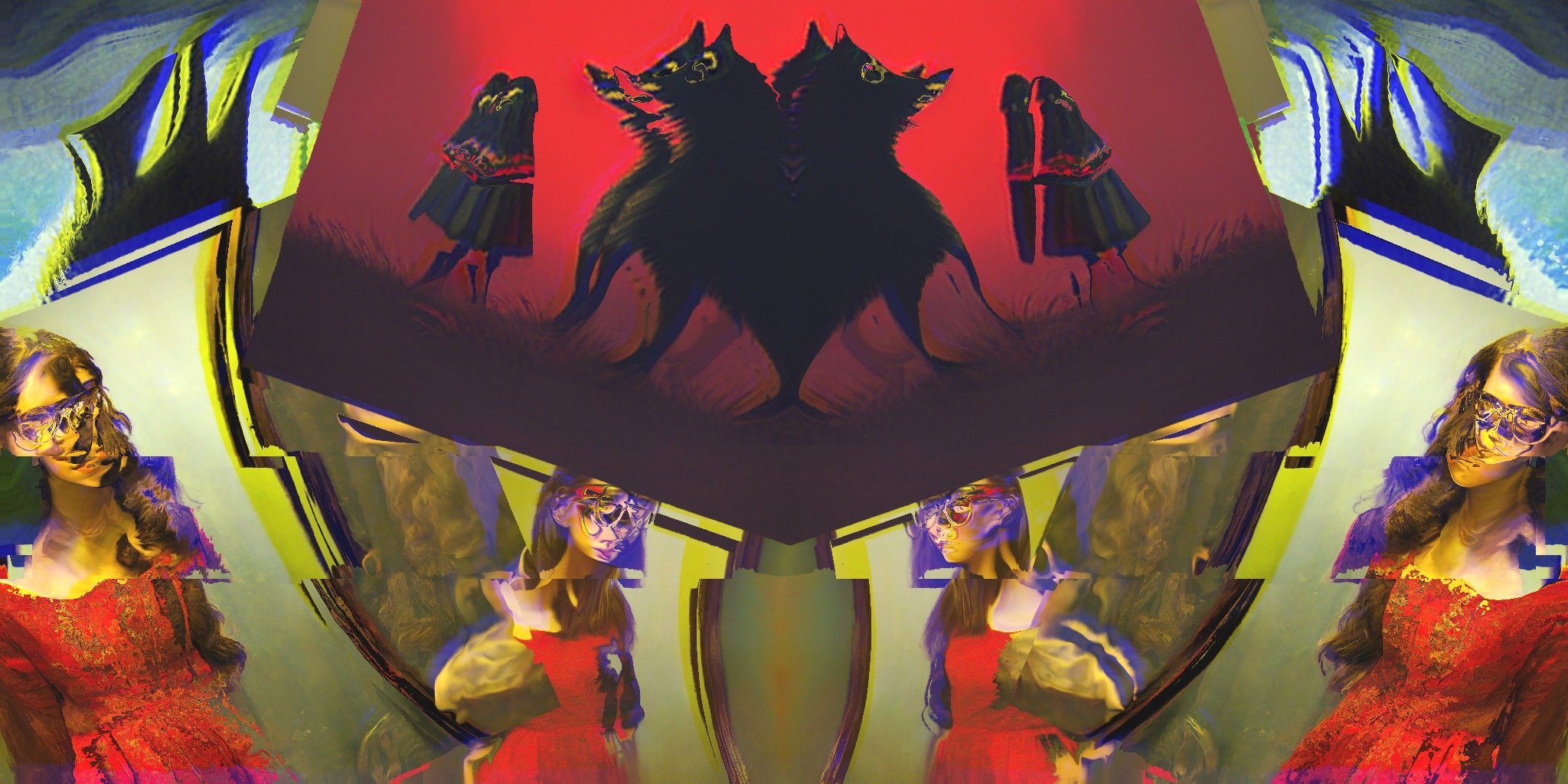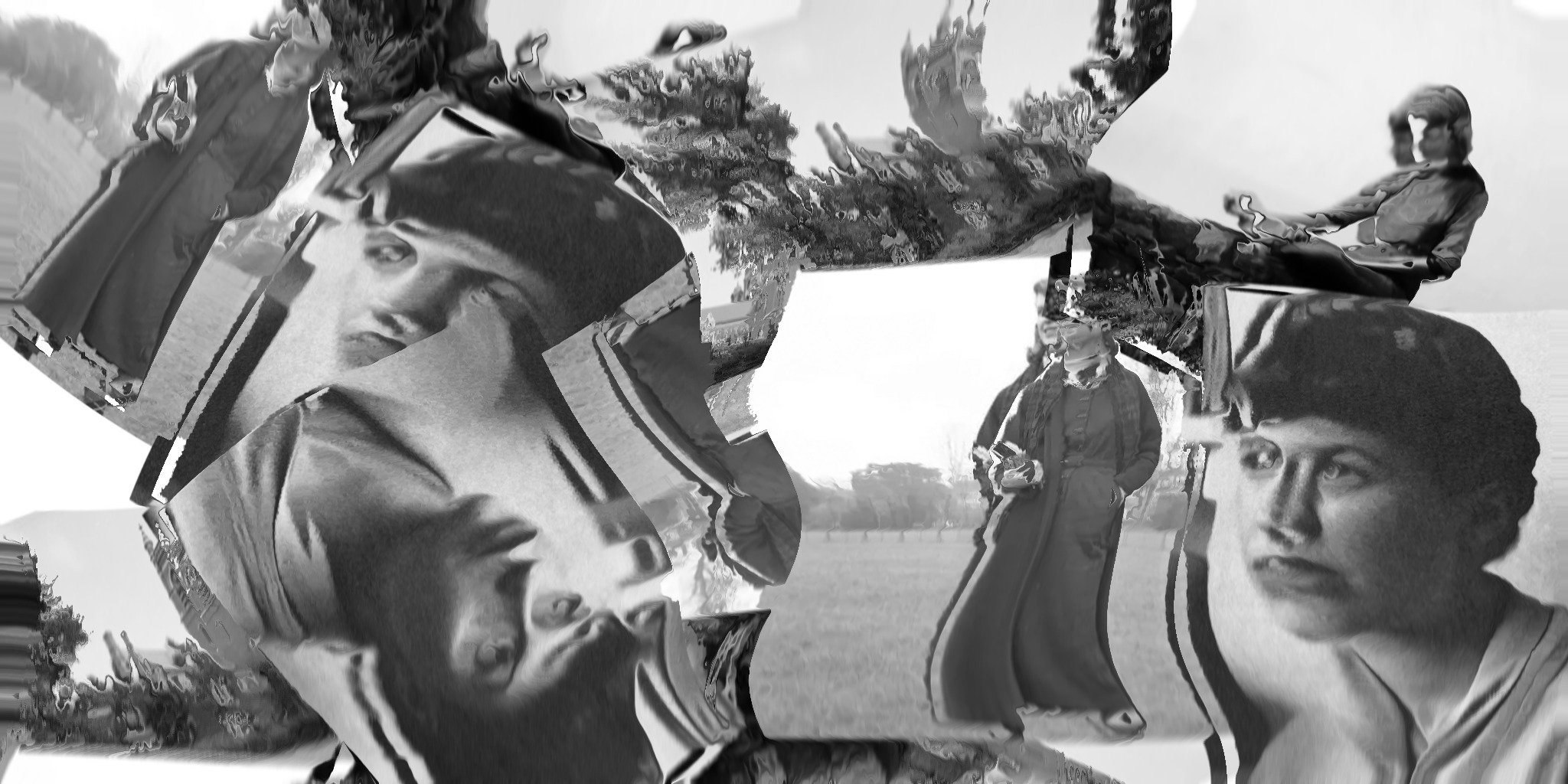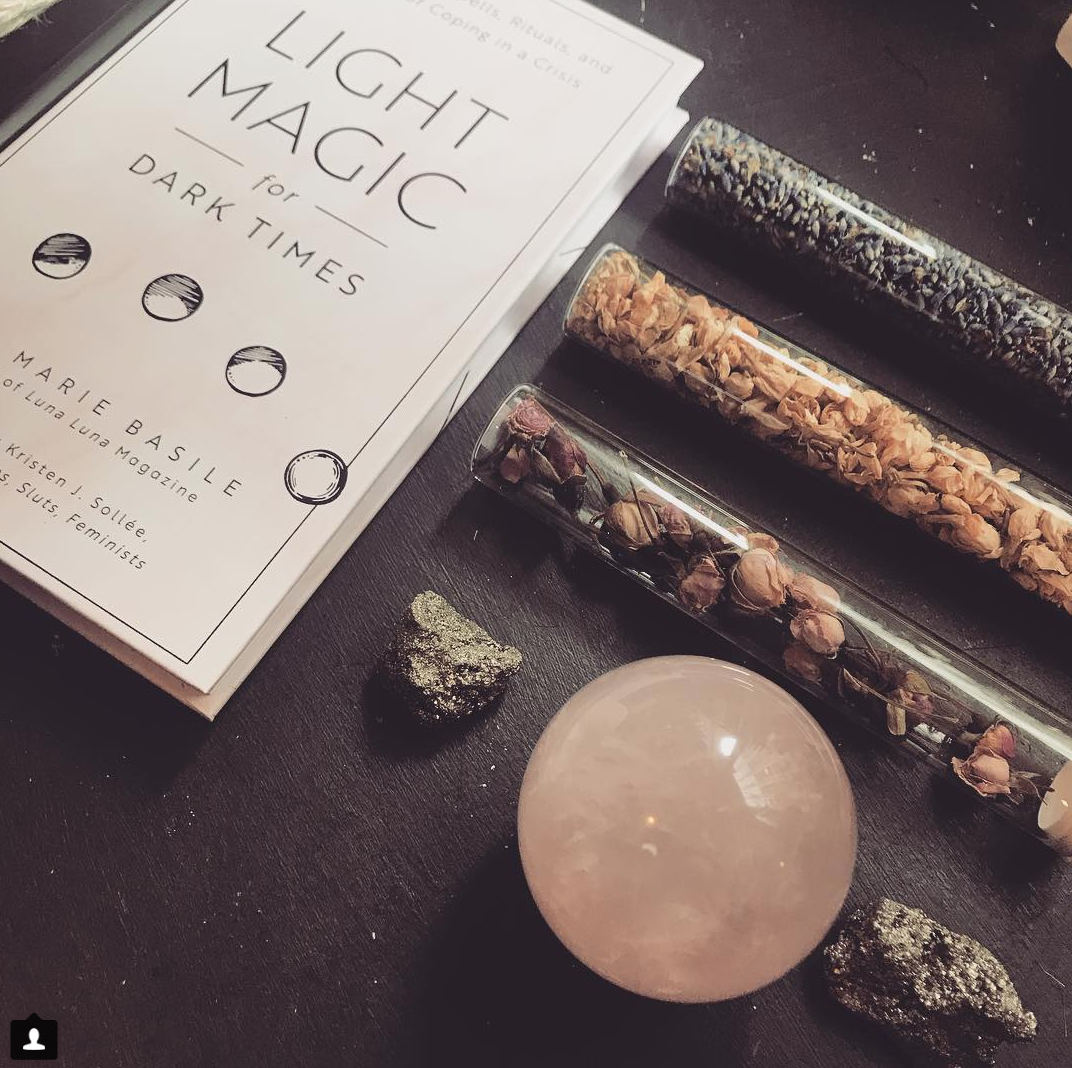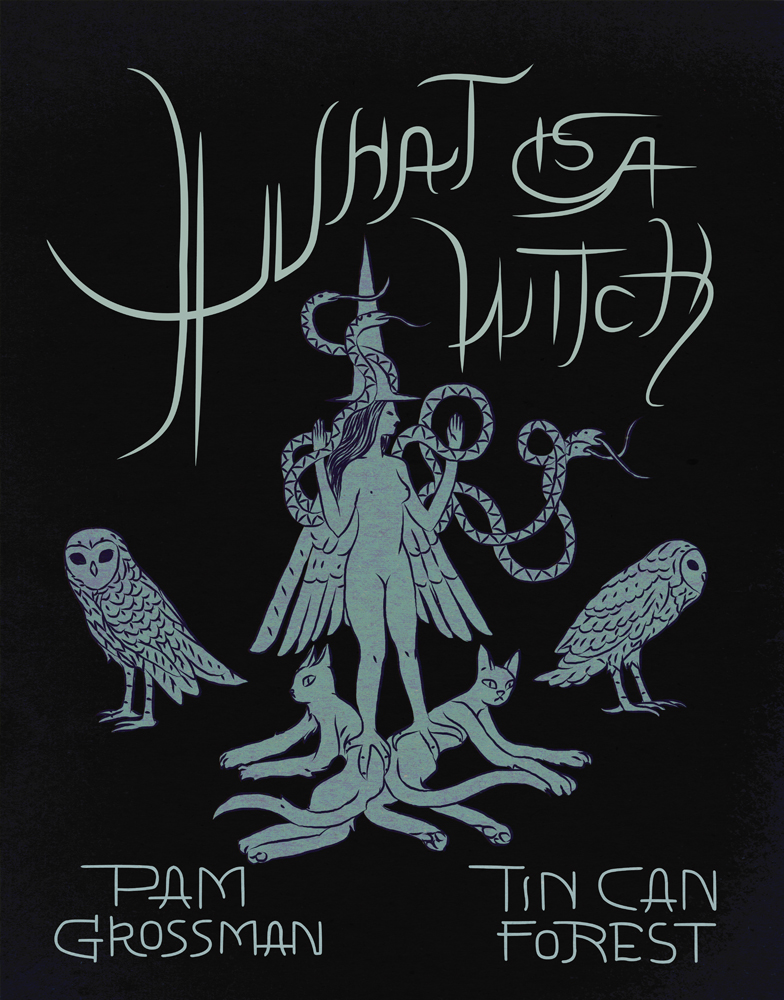Little Red is walking through the wood alone, eyes glued to the path in front of her, when she feels the first flicker of her hunger—her Wolf. She shudders with contempt. She hates the hunger, she hates the transformation it brings forth. Another sharp reverberation of need tugs at her stomach, teasing inevitability. It makes her angry. It makes her wince.
She hopes this will be one of those nights where she makes it home before the Wolf possesses her, before she loses herself to rabid sensations, feral as she searches for satiation. Her grip on the woven wood basket in her hand tightens. She could make it home in time if she hurries now.
I’m going to make it, she whispers to herself with firm certainty. As long as she believes it, she just might be right. She wants to carry this belief in her body, but her determined posture only leaves her muscles tenser than when she started. In response to her limbs’ stubborn ache, she deepens her clutch on the wooden basket handle, knuckles trembling as they turn even whiter. She’s going to reach her beloved grandmother’s cottage before the night completes its rapid descent, and that’s a promise. Even though dusk’s purple stain stretches across the forest, she hopes to make it home before everything is covered in a shroud of darkness. She won’t lollygag, especially if she truly intends to reject the Wolf’s advances tonight.
Her stomach shakes with hunger again.
Time is running out, Little Red.
In the beginning, back when Little Red was a child too young to
understand, she assumed the hunger to be literal.
This meant her response to the Wolf was eating everything she could.
Her mother would come home to find the girl practically hypnotized, eyes glazed over
as she continued to chew swallow and sit in the mess she’d made. Porcelain cookie jars were
reduced to scattered fragments across the ground, with plates strewn carelessly across their
kitchen table. Her stomach, despite being covered by her dress, was
visibly swollen. It puffed outward from the fabric as she continued to
shamelessly shove food past her lips, consumed by her ritual.
With shock and horror, her mother suddenly grabbed her to shake her
from this spell. Immediately after this Little Red
promptly doused the kitchen’s tiled floor with vomit.
She shakes her head away from this reverie fiercely, letting her hair swing against each cheek, stinging as it comes in contact with her skin. It’s pointless, thinking about appeasing her stomach with the bread for her grandmother in the basket. It wouldn’t satisfy her.
Her grandmother
was the only person she’d ever loved and felt loved by in return.
That was the woman who stepped up to raise her while everyone else
was busy giving up. Red’s father, a man whose genetic pool happened
to carry this curse left Red with her mother when she was still a child, before either
could comprehend her hunger. She considered him an absolute coward—he left
because he knew. Her mother tried to understand for a few years before she ended up leaving too.
Red remembers everything about the day her mother decided she was done.
She remembers the hunger,
how it festered in her organs until she lamented to the Wolf. How her mother
arrived to a child, her own flesh and blood, covered in self-inflicted wounds and foaming at the mouth,
surrounded by patches of fur and hair that littered every corner of the girl’s bedroom.
Red remembers the sense of knowing—this was the end. She saw it in her mother’s eyes.
She’d never see that face again, the one so similar to her own.
Suddenly, jarringly, annoyingly, a harsh wind beats against her back. She shivers, wishing she were closer to home.
She remembers her mother's tight clutch pulling her arm forward, firm
though it trembled as she dragged Red through the wood
for the first time, a mother and
a daughter trudging all the way down the path to grandmother’s cottage.
Of course, this would soon be a journey Red knew by heart, but all this was to come.
On that day, all she knew was that she now belonged to no one.
In spite of Red’s resentment taking root, her grandmother
was a kind and patient woman, sure to repeat over and over again
that the lost little girl was loved. She swore with force that the father and mother
who left Red behind were wicked idiots—they’d lost the chance
to meet the most wonderful child. Each time she said it, stroking Red’s hair as the child
held back angry tears, there was love. Red could feel and see it, unmistakable within
the old woman’s eyes and touch. Her grandmother devoted
her childhood to teaching her how to try and love
the beast inside her belly, making sure that Red never blamed herself for her parents’ neglect.
Because of her grandmother Red grew up strong, learning to embrace herself and
push through any fear she might feel toward her own body’s capabilities and curse.
For the old woman herself had spent years plagued by the same beastly
affliction, so she considered
it her responsibility to show Red how to regard her Wolf. She explained what might satiate the
beast, temporarily at least. She knew when the Wolf could starve for a little while, as well as when it was
best to feed the creature so that its next appearance wouldn’t involve a punishment toward Red.
Red and her Wolf grew to understand one another. They discovered together the empathy it
takes to coexist as two souls in one body, doomed to never feel satisfied.
Once she was older and more comfortable with her Wolf, Red was able to negotiate with the
animal that it would only emerge in the woodlands after nightfall—As though we are closer to being a
werewolf instead. The Wolf understood and agreed to it mostly because at least now it could have a
place to roam freely. For there was anger still in Red’s soul toward the Wolf
and its insatiable hunger. Both of them knew it, feeling this lifelong grudge that urged her to
suppress this beast within. She couldn’t let it go—the Wolf was aware.
Red’s skin buzzes as she walks along. Every inch of her feels electric and alert, ready for whenever the wind might strike. The anticipation leaves her feeling jittery and itchy. She stops herself abruptly and attempts to banish sensation by rubbing her hands over each of her limbs vigorously. Her fingertips are cold to the touch, and that doesn't change as she continues moving them up and down. She sighs. She’ll never get warm or comfortable. Sometimes she feels all there is to her is this emptiness, a hollowed-out feeling caused by the burden of her hunger. It suffocates her, this desire for satisfaction that will never arrive. As if responding to her fears, her stomach suddenly growls at her. She echoes a similar sound of displeasure in response, sneering at her own skin.
Cravings, cravings, cravings…
She looks up then, wondering if she ought to pray. Between the treetops and their leaves are gaps where pockets of the sky are visible. Sometimes she wishes she was one—a thing with leaves, sturdy and stable. A figure offering nothing but protection, caught somewhere between everlasting and already dead. She supposes were she to whisper some sort of plea, the words would be directed towards these very trees. After all, the woodlands have become a sort of second home, since they offer the Wolf a place of belonging. She smiles to herself, grateful for the rows of trees guarding her now. Indeed, each time she steps past the woodland threshold, she thanks this land for the sanctuary it provides her and her Wolf.
She’s barely resumed the rhythm of her journey when another breeze causes her hand to hit against the back of her head. Her hood has come off. Strange. Without a second thought, she jerks her arm to reach closer to her neck, grabbing at her coat. Her fingers curl around a lump of fabric resting between her shoulder blades. Damn. Usually she’s too aware of her hood for it to be absent. Is the hunger more intense tonight? Is that why she seems to lack a certain sharpness?
The wool coat had been a bright cherry color
back when it wasn’t yet worn, when it was a surprise gift
from her grandmother, who always called the girl Little Red.
Red places the basket down between her feet before she lifts her arms to reach behind her. Tugging awkwardly at the weathered fabric, her fingers pause then pinch at the washed-out shade of burgundy. She thrusts it forward, letting the hood settle against her face. The frayed wool has a scratchy texture and she can feel rubbing at her cheekbones. A sensation so familiar to her that she can’t resist pausing to feel content. Although there are holes in her garment as well as a few buttons missing, her cloak has never failed to make her warm. With the hood in place, she feels gentle heat trickling down her body. Warmth moving through her, sweet and slow, like honey. She nods her head before leaning down for the basket, strolling along the path again.
She never liked the nickname Little Red.
It only stuck because her grandmother made sure of it, asserting
it as her favorite term of endearment. At first Red hadn’t minded the
nickname, but then her grandmother sent her to school where all her classmates caught on
and teased her for it.
After that, she wanted to rid herself of it so badly that she began to refuse to answer to it.
When that didn’t work, she took it a step further by informing everyone she knew that she
deeply loathed the color red. She tried to prove it through abstaining from red fruits. Red
apples, cherries, and raspberries were not allowed anywhere near her lips. She started coming to school
every day in the same lacy white slip that belonged to her grandmother, though the old woman wore it
beneath her clothes instead. The dress didn’t fit the small girl in any capacity;
she was forever placing the falling straps back upon her shoulders. It was also permanently filthy
around the bottom, the hem tattered and brown from the constant dirt and grime she dragged it
through. Once her grandmother realized she had been wearing that soiled slip everywhere, Red was
served tomato soup for dinner and strawberries for dessert. She ate without protesting, scared to utter a
single word of defiance toward her grandmother. The shared silence persisted between them long after
they finished the meal. Red braced herself for punishment but it never came, until she woke the next
morning and saw sullied white lace dangling from a tall tree branch very much facing her window.
After that, she embraced the nickname, promising to never dismiss the color red again.
Red—just Red—is sprinting across the forest, heart pounding in her ribcage because she’s almost out of time. Leaves close to her feet rustle loudly as she increased her speed, panting heavily as she barrels down the rapidly darkening trail. Night has at last reached the woods, the green treetops almost entirely diminished by darkness, stars slowly emerging as the only guiding light to lead her home. If she really doesn’t want the Wolf tonight, she’s got to arrive at her doorstep now.
Yet of course, given her fixation on the stretch of woods ahead, she fails to notice the large tree root until her foot catches against it. Her fall lurches her into the air, followed by the audible thud of her landing. She groans in the dirt and grass before rolling herself upright. As she brushes the debris off her coat, she knows she has no choice but to accept her fate. Tonight the woods will be her only home, as the Wolf’s inevitable arrival means Red’s grandmother will not see her until the sun rises in the sky once more.
Her grandmother! The basket!
Red jumps up to stand, wincing from the pain as it ripples through her. Her body would certainly be sprinkled with blue and purple bruises tomorrow, thanks to her own stupidity. She squints into the twilight, trying to spot the silhouette of her basket. She realizes quickly that her sight will fail her and falls gently to her knees, hoping this won’t create any extra bruises. She extends her hand outward and clumsily slaps at the grass and sticks and mud. She makes sweeping motions until she finally feels it—the smooth wooden grooves of her woven basket. She snatches the thing triumphantly, hugging the it tightly to her chest. She rocks back and forth and a small whimper leaves her lips, her kneecaps slowly sinking deeper in the dirt until it covers her shins and feet. There’s nowhere left to go. Not now anyway.
A ferocious roar rips through her stomach, reminding her what she already knows to be true: her body is going to become the Wolf’s—very, very soon. A shudder travels through her, eyes fluttering shut as she listens to woodland creatures, their hoots and chatters the only sounds in what would otherwise be silence.
Sometimes, Red can hear her grandmother praying through the walls.
In an earnest voice, the old woman begs her God to help
her granddaughter heal her angry heart, that she may learn to love
and be loved without any hesitation or guilt.
Amen.
The Wolf’s arrival reaches Red’s skin before anything else, prickling sharply down her neck. Despite knowing this ritual all too well, she trembles in the way she always does, her limbs convulsing from the fear that surges as its footsteps grow closer. Her new-moon hysteria has the rhythm of a siren song. She can feel it taunting her with its tune. She notes that her hood is currently nestled between her shoulders again, something she assumes happened when she tripped. Of course, there will be no gesture on her part to return the fabric back to its rightful resting place. Such movement would be utterly pointless now, when the Wolf’s grunts and growls are so crisp, as if the creature’s mouth is pressed against her ear.
Hot puffs of breath hit the back of her neck. She whimpers again, much to its satisfaction. Despite understanding one another, the Wolf still revels in their game, especially knowing that Red wishes it would end. Since the Wolf doesn’t get to hunt very much, it enjoys the chance to embody every fearsome predatory trait running through its blood.
A feral heat spreads through her, purposefully dripping down her flesh before it settles dangerously inside her bones. Red will soon forget herself, once her body is entirely relinquished to the Wolf. She will have a lapse consciousness, and it will last until the next stroll she takes down this woodland path. Only after she returns to the forest will her wolfish memories arrive. They emerge as foggy visions, as if the Wolf and the hunger are nothing more than figments of her imagination or creations that belong to some bad dream.
What a shame that’s not the case. The Wolf exhales against her neck, a warm breath that strives to claim her body. It is an attempt to seduce this blood and flesh, urging her to give in and at last renounce her name. They both know she will, but she resists, despite having agreed to the Wolf’s inhabitance. She doesn’t mean to, really she doesn’t—it’s just programmed into her. Perhaps her angry heart is the one to blame.
To show she consents to the Wolf’s possession, she bends her left elbow, slowly raising her arm upward so her palm brushes against her neck. Hot breath now runs across her knuckles, but not for long. Grunting in satisfaction, the Wolf greedily responds to her simple movement by digging its knifelike claws into her throat. Now its mouth is truly against her ear, its drool wet and sticky on her skin.
Promise you won’t keep fighting me tonight, Little Red.
She nods in agreement. In response, the Wolf roars triumphantly, a shout which echoes through her body and the forest, traveling down the trail that was meant to bring her home moments ago. When the semi-silence returns, Red realizes she is crying, something that also ends up happening every time. It’s because she hates this part, when her body still resists the transformation despite her willingness to let it occur. Though the pain is fleeting, it’s so severe she can’t forget it. Her muscles twitch with defiance, but soon surrender to the Wolf’s entrance.
The beast begins to control her, twisting her limbs until her body contorts into unnatural and excruciating shapes. Red desperately switches her focus to the stinging feeling in her throat caused by swallowing her pleas for mercy, the last thing of her agency. It reminds her that her body is not her body but a vessel, one that belongs to something beyond what she considers to be herself, some other piece of her existence. She will never be able to fully claim this flesh, these muscles, the organs which keep her soul alive. None of it is hers. Never has been, and never will be either. Though she wouldn’t dare say this to her grandmother, Red considers her inability to ever live inside a body that is entirely her own to be the greatest curse of all.
She thinks of this as life slips from her grasp, almost gone entirely. Her mind falls away in pieces, one after the other. Using the last breath tethered to her in this body, she musters an exhalation, a promise meant to reach her grandmother— Little Red will be home when morning comes.
Another howl tears through the trees, the Wolf’s head thrown backward as it rejoices in this return to its body. A deep grin stretches across its face as it looks down the pathway before it. The night has begun at last.
Expanding its comfort within this body, the Wolf leans backwards so that the spine, its spine, curves into an arch. Bones crack loudly from the bend. It’s leaning so far back that fur and hair tickle the grass which was once behind its head. The Wolf thrusts all its limbs forward in one sweeping, graceless gesture, its stomach pressed harshly against both thighs. Sinking into the stretch, the Wolf folds further into its own body. In this position, every vertebrae within the spine protrudes, bones visibly pushing against flesh as if they’re all preparing to rip through the skin.
How marvelous it would be, the Wolf thinks, to feel my bones free from this shared body.
It rolls both shoulders, followed by stretching and cracking both arms. As the Wolf hasn’t yet tried to stand, it wobbles a bit once both feet force it upright, adjusting to the need to balance. Now that it feels properly back inside its body, the Wolf runs toward the trees. Startled birds flee quickly as it approaches, prompting a wicked cackle to come from the beast’s mouth.
NOW WHO’S AFRAID OF THE BIG, BAD WOLF?
TONIGHT I’VE GOT TEETH
ALL THE BETTER TO EAT YOU WITH!
To hunger is a terrible, wretched thing.
Just this morning I woke wrapped up in
what I think it means to be a woman wanting, lips
pressed against sheets stained by my spit
from always sleeping with an open mouth.
Yet somehow caught within this haze
I felt certain I’d figured out what it would take for me to conquer
what I consider to be hunger.
Don’t think that I’m referring to that bodily tug
which audibly roars through the stomach when a person
urgently needs to eat.
This hunger is more of an abstract feeling,
one both insatiable and all-consuming,
buried deep within my bones.
It comes close to existing as this
terribly severe feeling of desire, of wanting
something so intensely though you cannot begin
to explain what it is.
Where physical hunger debilitates you,
this feeling pushes you.
I find it strikes the hardest when what I’m craving
drives me wild. For this feeling always manages to convince me that, as long as
I am not satisfied, the eternal emptiness will linger, still gnawing at my soul.
Hunger wouldn’t be so terrible if it wasn’t so impossible to ignore.
It inspires my ongoing plight for satisfaction, all of which
seem to end with a lack of nourishment each time.
Sometimes a temporary fix comes along and I suck at the bones of it
until there’s no meat left, briefly full.
Inevitably this morphs into self-punishment, back to being just another
hollowed body in the end.
Will I ever let myself be nourished?
In the beginning I used to fight it, but not anymore.
For no matter how hard I resist the hunger
it will always be there, waiting to devour me again.
These days I prefer to greet it like an old friend.
Familiar and safe enough that I submit to it immediately
after it flickers through my stomach, letting it
swallow me whole so we’re now both living within
each other’s beastly bellies, consumed.
Certainly there is hunger
living amongst other prowling predators.
Sometimes I picture them all hunting together, concealed
drooling creatures watching carefully as they wait.
These animals could be hiding anywhere, for they want this
attack to be rather unexpected. Prey is much easier
to conquer and consume when unprepared
for the killer pounce.
Hunger likes to come across
as this big surprise, defeating you with one
swift and sudden movement. A seemingly effortless victory as if
Hunger isn’t methodical and calculating and doesn’t take its time
planning the next attack (it does). After all,
isn’t slow and steady what always wins the race?
I’ve got a good feeling about tonight.
Saliva pools at both corners of the Wolf’s mouth, drool dribbling down its chin in response to another ravenous fantasy. Just knowing that anything could happen excites the wolf. A starry woodland sky holds endless possibilities for satisfaction. A low growl echoes through its stomach in eager anticipation, which the Wolf mimics.
It’s time to begin tonight’s search for satiation.
The Wolf’s tongue curls to swipe all across its lips in a slow and purposeful manner. This is the last thing left to do before the hunt can properly transpire—make sure not one single drop of its own blood remains, waiting for the Wolf to take a taste. It isn’t sure how much time it has taken this night, licking and sucking the blood from all its wounds. Sometimes it goes on for hours, this cycle of ripping, biting, and nursing. Other times it is quick, in a rush to begin its hunt and capture.
The Wolf has been brutal tonight, leaving no corner of its flesh without gashes and wounds. From head to toe it is grotesque, blood smeared across its pelt, fur flattened by its own sticky substance. There are obvious teeth marks wherever pink hairless flesh is visible. Alas, self-mutilation has done nothing to appease the Wolf’s appetite. The cravings run feverishly through its body.
With a determined sneer, the Wolf places both its paws and knees down on the ground. It howls, throwing its head back before propelling itself into a vicious sprint, galloping through the woods on all fours. Under the new moon, the Wolf cries out once more with the earnest request that the night offer satisfaction and the hunt will end with nourishment provided.
I have considered hunger’s diminishment.
In fact I have considered it time and time again
because of how intrinsic this feeling is to my soul and body.
Hunger reminds me that I’ll never
truly be satisfied, and I remind Hunger
that’s something I already know—no matter what I do
things will always end in nothing.
I walk home
with my tail
between my legs.
Hunger devours
my surrender and my shame.
I’ll never be satisfied.
Hunger ostracizes,
twirling me through its otherness
until I’m dizzy, a descent to the
ground induced by my woozy state. I am
once again considering the—my—diminishment.
The Wolf is frantic and enraged.
Dawn makes its presence known, the sky changing color, but the Wolf needs more time. It can’t leave the woods behind, not yet. It still hasn’t found a single bite worth taking. Not a morsel has appeared. There is nothing, nothing to provide the Wolf with the slightest hint of satisfaction! It begins to wail then, a strangled sound of starvation and hopelessness emits from its anxious throat:
Please—I need to be nourished.
I can’t keep starving like this for that much longer.
I want to wake up
tomorrow or the next day feeling different, but
I know there is always nothing.
Hunger begins and ends the same, every single time.
The radiant pooling light of early morning nudges Red awake.
She blinks, bleary-eyed and yawning as she props her groggy self upright. The Wolf has left her on the doorstep of her grandmother’s cottage. She smiles softly with gratitude at its kindness, hoping the Wolf can feel her think it.
She’s awake enough now to inspect her body. How much harm did the Wolf inflict last night? A lot, she thinks. Her fingers run gently down her legs to trace the bloodstains, trailing up to her collarbone only to spiral toward her stomach. She’s lucky to never feel these marks as open wounds—any bites or bruises the Wolf gives itself on their shared vessel are completely healed come morning. Despite this aspect of the curse, she still likes to investigate her flesh when it is indeed hers once again. Besides, the red color coating her body seems to sparkle in the early morning sun.
However, this much blood coating her skin indicates that the Wolf had been unable to nourish itself during its twilight prowl. She sighs. Red and Wolf, defeated yet again by this shared hunger. What an indestructible force it is. Part of her pities the Wolf for feeling it even more intensely than she does.
Though her resentment toward the Wolf is strong, she knows it wants the same thing she does: freedom. For if the Wolf were indeed able to truly vanquish this hunger, it would be free and Red would no longer be subjected to transformations or any sort of hunt and capture. She knows how badly they want this, both selfishly and for each other. She shakes her head. Thinking about it for too long makes her heart grow heavy in her chest.
Red stands up only to recall the bruises on her skin. She winces, cursing herself for tripping over that tree root. Now, with her throbbing wounds in mind, she straightens out her ragged red coat slowly and gently. Once she feels it’s properly resting on her shoulders, Red grabs her basket. The Wolf has placed it in a patch of grass, close to where her head lay just a moment ago. She feels presentable.
Red enters her grandmother’s cottage. Inside, the old woman is busy setting the table for their breakfast, her brow furrowed as she ensures that each plate is in perfect alignment. Red takes a deep breath and steps closer to her grandmother, exhaling the warm smell of the kitchen—citrus and slightly burnt bacon. She can taste them on her tongue.
The two take their seats across the way from one another. They chew and swallow and clear their plates. Red looks up to see her grandmother smiling at her. Red smiles back. They laugh together lightly.
It’s good to have you home.

